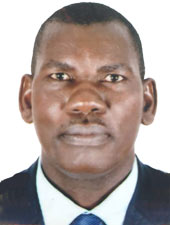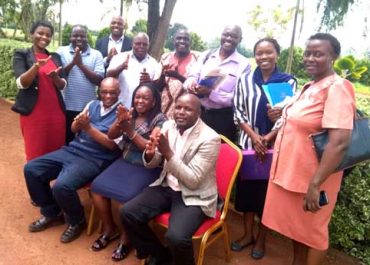
There is a growing awareness in the development community of the challenges in conventional agricultural extension advisory services to meet the needs of resource poor people in a rapidly changing world. As a result, more people-centred and demand driven approaches are in demand. The Farmer Field School (FFS) approach provides a platform at community level for putting in practice client-driven and participatory advisory services, linking technology innovation with indigenous knowledge to enhance food security of vulnerable communities. The whole approach is based on learning by observation and discovery based learning. The last three decades have seen a rapid expansion of the Field School (FS) approach (including Farmer Field Schools (FFS), Agro-pastoral Field Schools and other adaptations). The Eastern Africa sub-region has witnessed an increase in small scale interventions as well as large scale investment programmes by FAO, the World Bank, IFAD, the Adaptation Fund, national governments and NGOs. This has been accompanied with an increased demand for capacity development, knowledge management, sharing and quality control of FS programmes. AFAAS is currently hosting the Eastern Africa Field School Support Hub (FS SH) since November 2018. The mandate of the FS Hub is to provide a platform for the institutionalization and oversight on quality implementation of the FS approach among governments and other FS actors in the region.
In order for the EA FS hub to undertake its mandate, as a secretariat, for the institutional mechanism for the FS approach in the region, its roles and responsibilities shall be to : i) provide strategic guidance and leadership in the institutionalization and the implementation and quality assurance of FS approach, ii) facilitate knowledge generation and sharing across actors and provide catalytic support for enhanced quality of FS interventions; iii) champion policy dialogue and advocacy at regional and sub regional levels such East African Community, Inter Governmental Authority on Development (IGAD, and African Union Commission (AUC); iv) facilitate skills and competencies development and accreditation processes; v) ensure the FS approach is maximized for achievement of food and nutrition security; vi) foster and strengthen strategic public-private partnerships for FS implementation and sustainability; vi) mobilize resources to undertake its mandate.
The vision of the FS Hub is to see “Farmers and agro-pastoralists transforming their livelihoods’’. While the mission is to be a leading regional center of excellence for quality FS implementation” in the Eastern Africa Region. This is poised to be a one-stop shop for FS master trainers, facilitators, documentation and information.

The core values that guide the EA FSH; i) integrity, the FS Hub constituency shall ascribe to high standards of personal integrity, ethics, and transparency together with individual and organizational accountability in the conduct of business; ii) professionalism; the FS Hub shall adhere to professional standards which enhance quality in FS implementation; iii) iinnovation; Facilitate and promote innovations, respond to paradigm shifts and create new pathways for scaling up and out; iv) ccommitment; dedication to FS hub cause, aspirations and mandate and v) inclusiveness; responsiveness to the needs of the marginalized, youth and gender inclusivity.
Geographically, the FS hub operates in eight IFAD member Countries (Djibouti, Ethiopia, Eritrea, Kenya, Somalia, South Sudan, Sudan, Uganda) and an additional three from the East African Community (Burundi, Rwanda and Tanzania). A common web platform www.eafieldschool.net has been established as a repository of FS information to complement the Global FS platform managed by FAO. The FSH is collaborating with Access Agriculture in developing training and demonstration videos on thematic Field school topics. A whatsapp group, Linkedin page, Facebook page and Twitter page have been rolled out to enhance communication in an increasing social media perceiving FS actors and practitioners.
